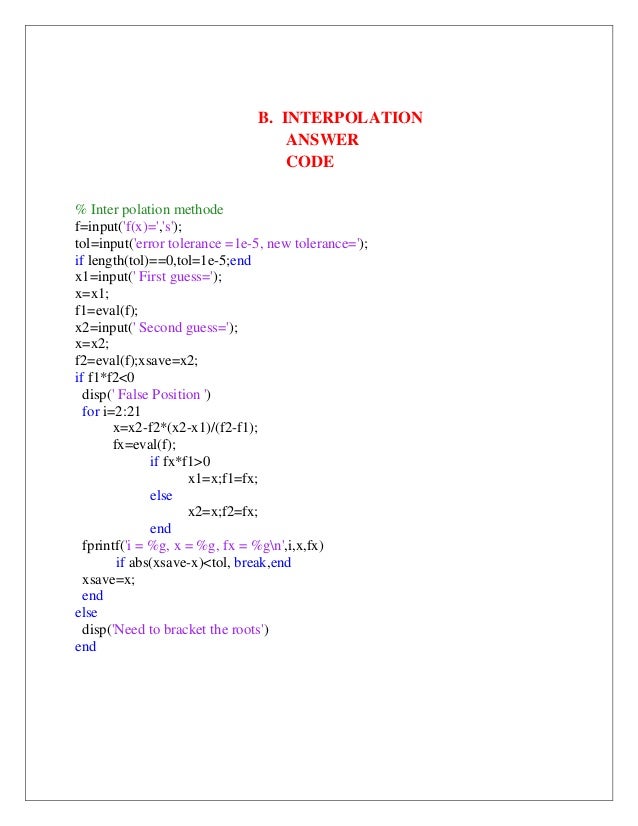
Here are the Bisection Method formulas xm = (xl+xu)/2 I'm not convinced that you understand what the above means. X L - Lower (left) endpoint of an interval x M - Midpoint of an interval x U - Upper (right) endpoint of an interval a) If f(x L).f(x M) 0, the graph of the function does not cross the x-axis between x L and x M, so we should look in the other half of the interval - in x M, x U.
If so, USE THE SAME VALUE FOR x U (i.e., don't change x U), but reset x L to x M. Your code should NOT include x U = x U. At each step for a) or b), we are shortening the interval by half its length, so that we eventually find the root.
Regula-falsi Method
C) If f(x L).f(x M) = 0 then either f(x L) = 0 or f(x M). There's probably an assumption that f(x L) ≠ 0 and f(x U) ≠ 0, but you didn't show it in the attachment you posted.